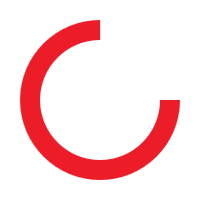Connected services and co-ordinated care
- Connecting stakeholders, in a variety of care & health settings anywhere, in real time through cloud-based, digital connectivity.
- Keeping people informed and connected to care through apps and data sharing.
- Our smart solutions provide relevant insights and enable the delivery of efficient, proactive, preventative and co-ordinated community-based care.
- As well as the current data warehousing and business intelligence tools offered, which include dashboards and customised reporting, expanding on pattern recognition and predictive analytics will be a focus for future development.
- Our focus is on developing smart solutions which provide relevant insights and enable the delivery of efficient, proactive, preventative and co-ordinated community-based care.
- As well as the current data warehousing and business intelligence tools offered, which include dashboards and customised reporting, expanding on pattern recognition and predictive analytics will be a focus for future development.
Solutions to support connected care
PNC Call Handling
PNC is the world’s most advanced unified communications platform. It's core functionality includes:
- Digital connectivity – with support for IP protocols
- Call overflow – managing peak call time
- Proactive services – automated outbound call service
- Field force management – full service management tool
- Service Management– orchestrating and capturing daily activities
- Remote configuration and device management - for smart home hub units
ICP Triage Manager
Patient management software ICP Triage Manager provides a platform which enables clinical and service teams to monitor patients remotely by processing readings received from myMobile and myClinic connected health hubs.
An automated prioritisation tool and traffic light system helps triage cases requiring urgent investigation. The system captures historical data and displays trend graphs which support data-driven clinical decision making, whilst providing Clinicians the ability to access data remotely at any time, enabling them to make better informed decisions.
ICP Triage Manager can also be easily integrated with other patient management systems.
IoT Device Management Platform
Tunstall's Device Management Platform (DMP) is our unique cloud based software service. All Smart Hub and Lifeline units deployed in the field are monitored and managed by the DMP. It allows operators to check units for regular heartbeats to ensure correct functionality and act if issues are found. The software also creates data logs of usage and monitors performance.
TSP2
TSP2 is a global service and innovation cloud-based platform, designed for developing new innovative care & health services. Using mobile, IoT devices, sensors and integrations it is based on a standardised and modern IT architecture. With open API’s, it can support a multi-tenancy, clustered infrastructure, IoT device integration and machine learning.
Proactive alarms - TSP2 enables an event based alarm handler that can be activated by triggers, sensor data, or pattern recognitions for proactive services
Individual health - The platform also addresses care & health for the individual, enabling more relevant services, connecting the individual to care givers, relatives and operators.
Tunstall Protocols
Designed specifically for telecare, Tunstall protocols fully supports all current telecare sensors.
The TT21 allows full alarm meaning and location information to be transmitted. It also has the flexibility to support new telecare sensors as and when they become available e.g. Fall detector not worn and activation cancelled.
Additional features of the TT21 also include the alarm meaning and location information to be separated to allow both to be transmitted for all telecare sensors e.g. with the TT92 – each flood detector can only be identified as Flood Detector 1, 2 etc, wheras with the TT21 – each flood detector can be identified along with its location e.g. Flood Detector Downstairs W/C
Our protocols are all fully compatible with the two character call code field used on PNC 8. This enables 1 of 274 call codes to be identified when an alarm is raised, providing the monitoring centre with more complete and accurate information relating to the alarm activation (e.g. manual activation, high/low temperature, bed/chair not up, virtual sensors etc) as well as the information calls (e.g. auto low battery and auto presence fail)
Other features of our protocols include:
Support for both Lifeline home units and grouped housing system equipment, providing standard alarm handling information across all Tunstall systems
Enhanced security, providing protection against potential future use of protocol to transmit confidential client information
Designed to be implemented with a minimum of changes to existing software libraries
Extensible to FSK based operation for fast data transfer i.e. ADLife
Designed to support the implementation of third party interface applications e.g. Continua Alliance and Soprano
Tunstall Protocols - TT92
Tunstall Protocols - TT21
Tunstall Protocols - IPACS



